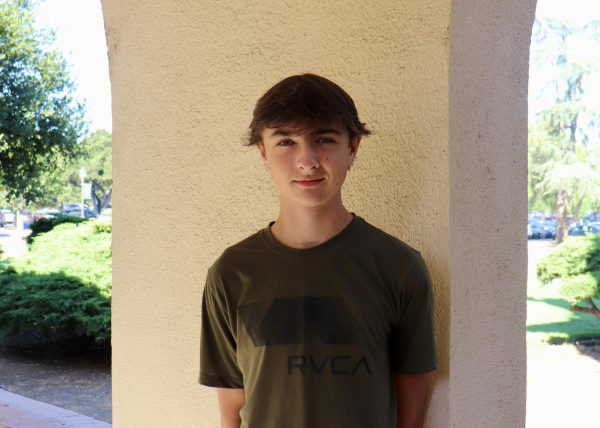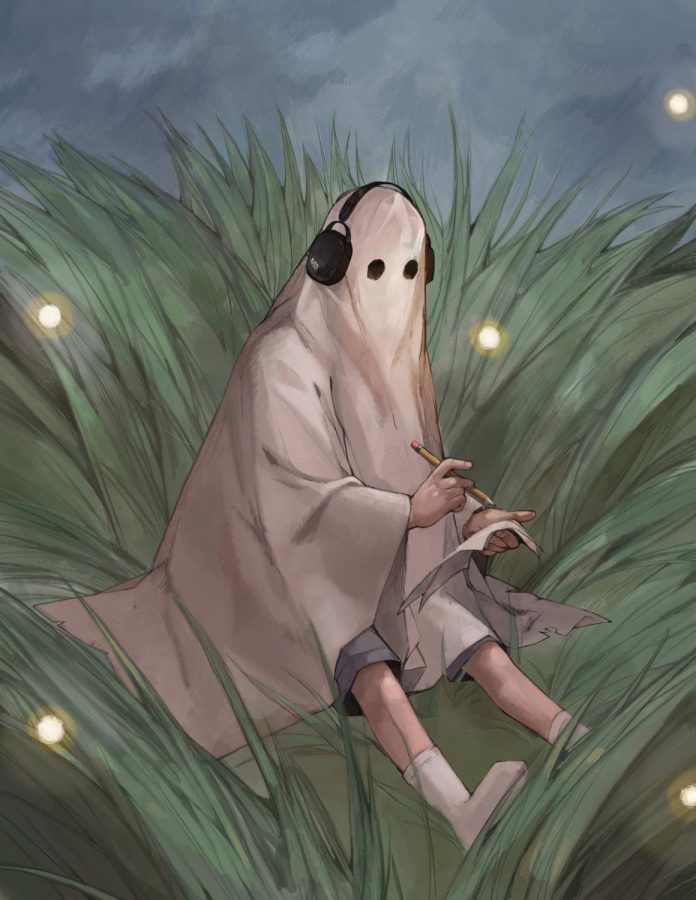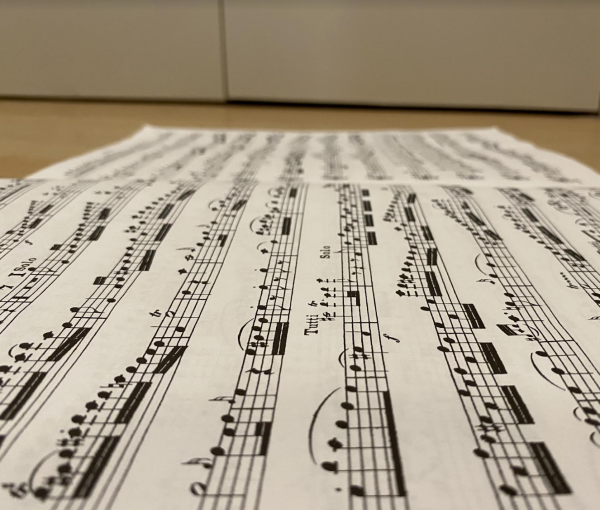Ghostwriters
The art of ghostwriting and its impact on the music industry
At any moment, people across the world tune in to listen to their favorite artists belt out heartfelt, relatable songs, and it is not uncommon for people to feel a close connection with these singers through their lyrics. However, it brings to question who the true songwriter is. Due to the presence of ghostwriters in the music industry, anyone could be behind the lyrics.
Contrary to popular belief, ghostwriting in the music industry has been around for decades. Math teacher and music enthusiast Zachary Barnes recalls one prominent example of a ghostwriter, Prince.
“A lot of people didn’t realize that songs that they [liked] were actually written by Prince,” Barnes said. “[However], I don’t think he minded being a ghostwriter for people because he was famous.”
Despite Prince’s fame, he chose to ghostwrite on the side, in anonymity. Similar to how Prince wrote songs for Madonna and The Bangles, in current times ghostwriting is still prevalent in the music industry. Though there are a multitude of reasons one may hire a ghostwriter, for instance, to generate new ideas.
“If you’re in the music industry, [fans] want you to keep making music,” Barnes said. “You can’t rely on your old successes, so ghostwriters come into play.”

In the music industry, music artists sometimes seek help from ghostwriters to craft lyrics or tracks for their songs. Thus, a relationship forms where ghostwriters create lyrics or backings for songs, often anonymously. As a ghost producer, senior Anirudh Bharadwaj worked his way up in the ghostwriting world.
“My first release was commercially a flop but it got the attention of big names across the industry,” Bharadwaj said.
After the initial release, Bharadwaj learned the importance of building relationships within the music industry. His first song landed him connections that proved valuable, resulting in his current position as a creative director.
“Having this new ability to essentially be a creative director allowed me to start orchestrating other artists’ projects as a ghostwriter and ghost producer,” Bharadwaj said.
For ghostwriters, the process begins by identifying the style of the artist that they are composing for. Whether it is working with R&B or rap artists, ghostwriters learn to be flexible in their projects to best fit each musician’s style.
“With most of these projects, I’m usually working with a vocal idea in mind so it’s all about making my instrumental track fit with the scheme of the artist’s voice and also matching the feel of other songs in this artist’s collection,” Bharadwaj said.

As a ghostwriter, getting inspiration from other artists can be crucial. With the music industry being so diverse, all styles of music are out there to be heard and learned from.
“I try to fixate on specific elements of songs which I may want to incorporate into one of my own ideas,” Bharadwaj said. “I try to listen to 100 brand-new songs a day because it’s a good, diverse exposure to new types of music.”
Along with diversifying one’s taste within the music world, networking and collaborating with new people is a huge component of being a ghostwriter. For many, ghostwriting is a profession that provides compensation and a way of life, but for Bharadwaj, this work has more meaning to it.
“The relationships I’m building in my opinion are far more important than trying to make some quick bucks in the short term and failing to see long-term benefits and repercussions,” Bharadwaj said.
Getting lost in the money is a common feeling in the ghostwriting world. With artists who are able to compensate well, ghostwriters often provide their work just for the money and not for the beauty of the work they created.
“I know quite a few people who have gone down this slippery slope, and now being dependent on music for their source of income, there is very little room to allow their own name to flourish in the music community and instead they just end up propping up other artists,” Bharadwaj said.
In the music industry, artists may pay ghostwriters a pre-agreed amount of money. However, if the song reaches mass popularity, the ghostwriter’s income may not increase.
“[If I were a ghostwriter,] I think it gets negative when we come to this agreement,” Barnes said. “I thought [the song] was gonna be hit, [but] you gave me 1,000 bucks. But you’ve made billions of dollars off this one record that I did all the work for. It’s like I gave you 1000 bucks for a song. And that was it. So, I think it’s the money that corrupts the process.”
Although the music industry and ghostwriting world can be driven by money and hard to survive in, at the end of the day, everybody shares their love for music.
“As long as you appreciate and make music because it brings you joy over anything else, you’ll be fine because that’s the reason we all start making music in the first place,” Bharadwaj said. “Not to be famous or rich, but because it brings us joy more than anything else in the world.”
Art courtesy of Kaila Ni
Print Issue
Please click on the three vertical dots on the top right-hand corner, then select “Two page view.”

2020-2021 - Staff Writer
2021-2022 - Staff Writer
2022-2023 - Managing Editor
I joined C Mag because of the focus on arts and representing our...

2022-2024 Staff Writer
I joined C Mag to explore a creative side and share stories with everyone. I have two older brothers and two dogs. I enjoy playing...




![Music on [REC]ord](https://cmagazine.org/wp-content/uploads/2024/05/Screenshot-2024-05-20-at-7.12.21 PM-600x478.png)
